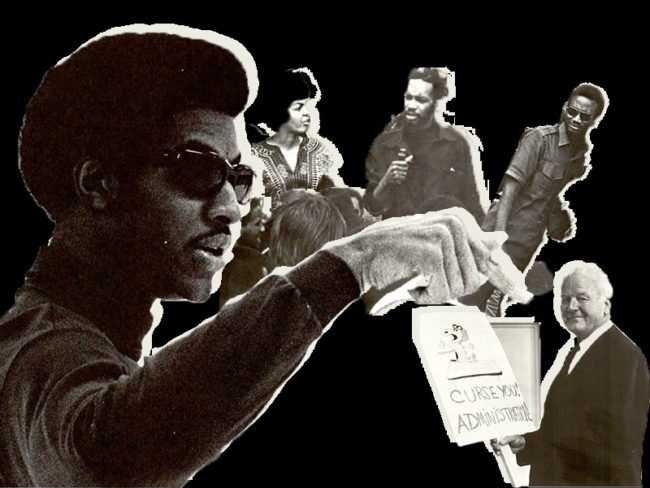By: Anga Sanders, D’Marquis Allen, and the Black Alumni of SMU Board
To the brave and excellent members of the Association of Black Students (ABS) and the Black student population at large, we offer our continued and unwavering support.
The prophet Ezekiel visited exiled prisoners in order to better understand their experiences. He “sat where they sat.” And when you sit where someone sits, then you see what they see. As Black alumni of SMU, we have sat where you now sit, and we have seen what you see. And because we have, we offer our support.
Being a Black college student at a Predominately White Institution, or PWI, presents a particular set of challenges, and this is no less true at SMU. When you are not in the majority, when your history and culture dominate neither experiences nor activities, the simple tasks of daily living require greater expenditures of physical and emotional energy. It’s exhausting. It sometimes seems overwhelming. But you are not alone.
We can say this with confidence because of the rich history of mobilizing that precedes your current station. In 1969, and on the heels of the Civil Rights Movement, 33 members of SMU’s Black League of Afro-American College Students (BLAACS) sat in on President Willis Tate’s office to protest the lack of academic diversity and the improvement of working conditions for Black employees. In 2015, ABS helped launch the #BlackAtSMU movement to call attention to longstanding racial insensitivities across SMU’s campus while incidents of police brutality increased nationwide. And at multiple points in between, Black students have raised their voices to seek equality and fair treatment at SMU.
Today, you all are calling the university to accountability by advancing the #BlackAtSMU movement during a global pandemic and in the midst of national protests in response to the unjust killings of Black people by law enforcement officials and civilians. Though the times have changed, we are uniquely united by similar sets of circumstances that we most certainly will overcome.
As present members of ABS, you are playing an active role in honoring the legacy of Black students who came before you. More importantly, though, you are extending a tradition of resistance that will live beyond your time on the Hilltop. While doing so, it is important to express your feelings freely. Share your stories in both cathartic and instructive ways. Listen to the experiences of others, learn how they dealt with them, and internalize the fact that just as they belonged, you too belong at SMU. Though this journey might not always be what you anticipated, you have the power to effectuate change proactively and strategically for yourselves and future generations. The skills and resilience that you are developing now will serve you well throughout your life.
We hear you. We feel you. We are with you. We sat where you sit, and we persevered. And so will you.
Humbly submitted,
Anga Sanders, ’70, D’Marquis Allen, ’16, & Black Alumni of SMU Board
The Daily Campus welcomes opinion contributions from students, faculty and community members. Submissions should be no more than 1000 words and are subject to copy editing. Please email submissions to [email protected], and include a cell phone number and a short biography.















